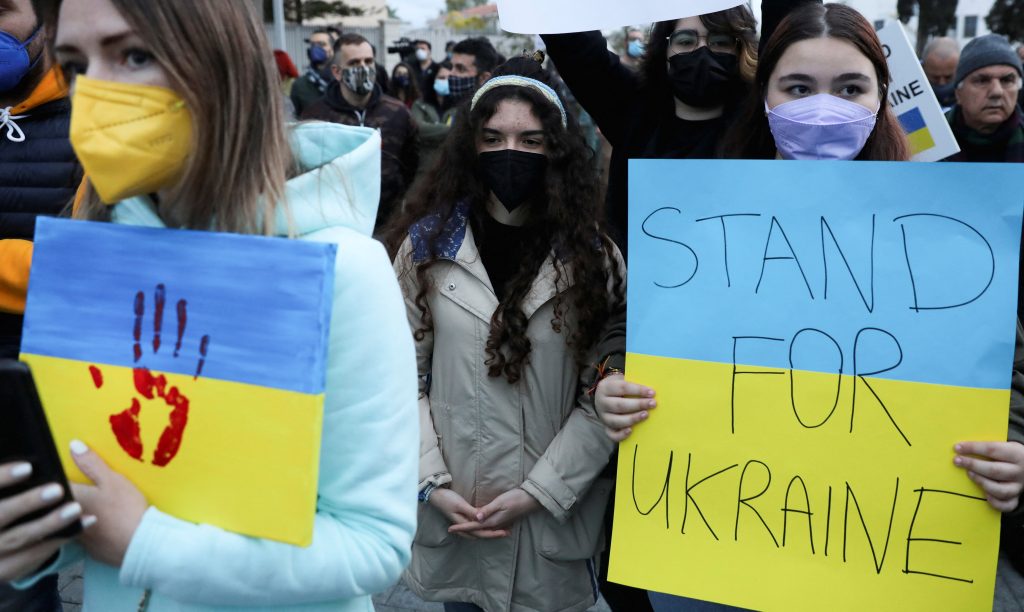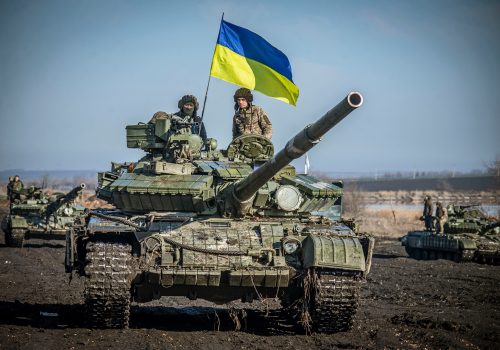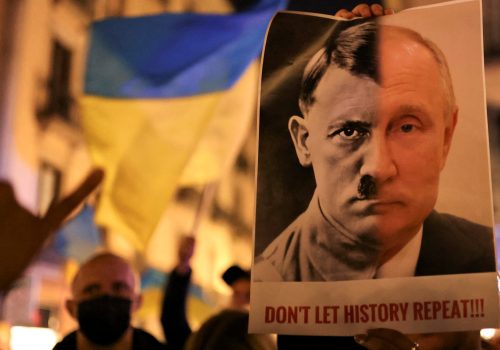The world is currently working hard to help Ukraine defend itself against Russian aggression. While sanctions are very welcome, Ukrainians desperately need weapons as they attempt to counter the largest European invasion since World War II.
The issue of arming Ukraine is no longer only a matter for governments as has traditionally been the case. The world is changing. On February 26, the Ukrainian Embassy in Prague in close cooperation with Czech officials launched a crowdsourcing campaign to secure finances for weapons purchases.
Thanks to this new format, anyone can now contribute directly to the acquisition of weapons for Ukraine. The model is not far from the fundraising initiatives that allow people to adopt an animal at a zoo. Those who wish to participate can club together to fund the purchase of a howitzer, an infantry fighting vehicle, or even a tank.
The idea of collecting money from private Czech donors is a spontaneous response to Russian aggression and reflects cooperation between the Ukrainian Embassy in Prague, Czech officials, and the security community. The Czech historical experience of Soviet invasion in 1968 also played a significant role. Nor is it a coincidence that on the very day the campaign was launched, Ukrainian President Volodymyr Zelenskyy called Czech Prime Minister Petr Fiala.
Another key factor that enhances the potential of this campaign is the Czech Republic’s large defense industry. This creates a more propitious climate for such a project than in other European countries. Czechs consider arms to be a traditional part of their industry and an important national export. In addition to a modern arms industry, state and private sector storage warehouses in the Czech Republic contain significant amounts of Soviet-era weaponry that Ukrainians know well.
Stay updated
As the world watches the Russian invasion of Ukraine unfold, UkraineAlert delivers the best Atlantic Council expert insight and analysis on Ukraine twice a week directly to your inbox.
The steady flow of sophisticated arms delivered to Ukraine in recent months has already had a significant impact on the course of the war, enabling the Ukrainian military to inflict significant losses on the Russian invaders. However, Ukrainians will soon need resupplies of the ammunition and weapons they use the most.
The Czech Republic can play a key role in making this happen. The wider region’s stores of Soviet-era arms are one of the important strategic assets that the countries of Central and Eastern Europe can offer to Ukraine.
The government in Prague has already reached deep into its reserves and on February 26 dispatched a cargo including 3,000 machine guns, 7,000 rifles, 30,000 pistols, and over a million rounds of ammunition worth USD 8.6 million to Ukraine. This was in addition to 4,000 artillery shells worth USD 1.7 million.
Following an emergency meeting on February 27, Prime Minister Fiala announced yet another donation of unspecified heavy weaponry with a value of about USD 18 million. Prague thus became one of the most active countries providing military material to Kyiv, totaling so far about USD 30 million. And more may be announced this week.
At the same time, securing arms for Ukrainians from private warehouses appears both financially and legally difficult for the Czech government. Hence the idea of crowdsourcing and direct Ukrainian purchase from defense companies. Czech officials are ready to issue export licenses and facilitate fast-track delivery so that weapons reach Ukraine before it is too late. The next two weeks may be critical.
Eurasia Center events

Prague’s crowdsourcing campaign is unique. There are several other fundraising efforts where the Ukrainian government and other institutions have opened accounts for donations, but those are either general campaigns or focusing on humanitarian aid and not weaponry.
In the first two days following the campaign launch, more than USD 15 million was collected. More importantly, money doesn’t stay in the account of the Ukrainian Embassy in Prague. It was immediately sent to participating companies and the export of purchased arms is currently being processed.
The crowdsourcing campaign was initially intended for Czech citizens and companies. However, as Deputy Defense Minister Tomáš Kopečný noted, “it turned out to be global since its first hours with people around the world sending their contributions.”
In response to this global demand, a US dollar account was added to the initial Czech Koruna account for donations. With available Czech weapons stocks valued at over USD 100 million, there may also be room for governments to join this initiative.
One of the advantages of this joint Ukrainian-Czech project is the wish list produced by Ukrainians based on what is available in Czech warehouses. This can be shared with other governments and big private donors. Some items on the Ukrainian shopping list may go beyond what is now ready to be dispatched from the Czech Republic, thus the project can expand to a few other Central and European countries where the requested material could be found.
US funds could potentially be secured through an appropriate amendment to the “Defending Ukraine Sovereignty Act” currently discussed in the Senate. This will certainly require some political leverage, but it is worthy of such an investment. Ukraine is not only fighting for itself but also for the entire democratic world. And here we have a tool that can genuinely help.
Petr Tůma is a visiting fellow at the Atlantic Council’s Europe Center and a Czech career diplomat with expertise on Europe, the Middle East, and transatlantic relations.
Further reading
The views expressed in UkraineAlert are solely those of the authors and do not necessarily reflect the views of the Atlantic Council, its staff, or its supporters.

The Eurasia Center’s mission is to enhance transatlantic cooperation in promoting stability, democratic values and prosperity in Eurasia, from Eastern Europe and Turkey in the West to the Caucasus, Russia and Central Asia in the East.
Follow us on social media
and support our work
Image: Demonstrators hold placards during a protest against Russia's invasion of Ukraine, outside the Russian embassy in Nicosia. March 1, 2022. (REUTERS/Yiannis Kourtoglou)




